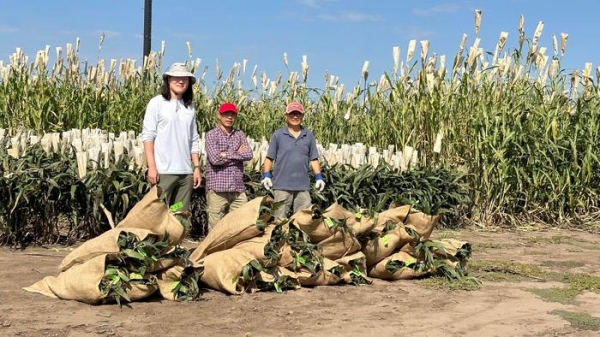Researchers at the Center for Advanced Bioenergy and Bioproducts Innovation (CABBI) have developed a new sorghum variant that can outperform soybeans in oil production, with great potential as a clean source of renewable fuel.
Scientists have long worked to create new sustainable sources of vegetable oils, known as triacylglycerols (TAG), to meet the growing demand for renewable fuels like sustainable aviation fuel (SAF) and renewable diesel.
Currently, oil palm and oilseeds such as soybeans provide most TAG for renewable fuels, but these sources alone cannot meet future global needs. To address this, researchers have been engineering high-biomass grasses like sorghum to produce oil. These grasses are highly efficient at photosynthesis, produce large amounts of biomass, and can grow in tough climates, making them excellent candidates.
Left to right: Kiyoul Park, Truyen Quach, and Ming Guo harvesting sorghum biomass to deliver to IBRL at the University of Illinois for bioprocessing (Photo Credit: Edgar Cahoon)
Health Sci/Tech Top Stories Agriculture

